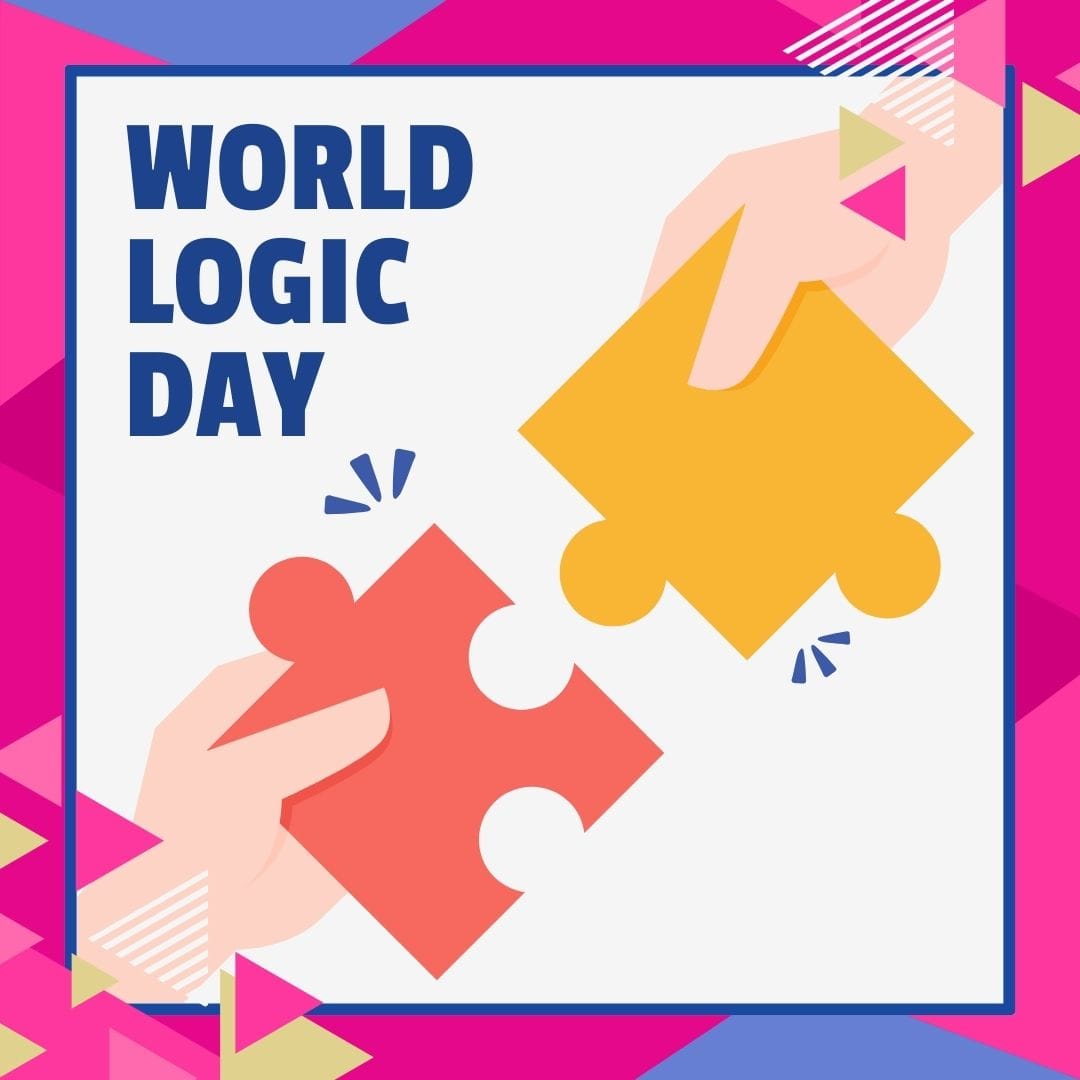Get ready to flex your mental muscles! World Logic Day 2024 is here to ignite your curiosity and spark a passion for clear thinking. This year, we celebrate the power of logic, not just in academics, but in navigating the complex world around us. From debunking misinformation to building stronger relationships, logic empowers us to make informed decisions, communicate effectively, and solve problems with confidence.
So, whether you’re a seasoned logician or just starting your journey of critical thinking, join the celebration! Dive into engaging activities, explore fascinating puzzles, and discover the magic of logical reasoning. Together, let’s unlock the transformative potential of logic and build a brighter future, one clear thought at a time!

What Is World Logic Day
World Logic Day, celebrated annually on January 14th, is all about raising awareness and highlighting the importance of logic in various aspects of life. Established in 2019 by UNESCO and the International Council for Philosophy and Human Sciences (CIPSH), it aims to:
Increase public understanding of logic
- Promote the development and teaching of logic
- Foster international cooperation in logic research and development
- Contribute to a culture of peace and dialogue
The date chosen for World Logic Day isn’t random either. January 14th marks the birth anniversary of Alfred Tarski, a renowned Polish logician, and the death anniversary of Kurt Gödel, another influential figure in the field.
World Logic Day and Parenting
Connecting World Logic Day to parenting can be a wonderful way to nurture your child’s intellectual development and equip them with valuable life skills. Here are some ideas
Make logic playful and engaging
- Logic games and puzzles – Introduce your child to age-appropriate logic games and puzzles that challenge their thinking and problem-solving abilities. These can range from simple sorting activities for toddlers to complex strategy games for older children.
- Storytelling with a twist – When reading stories together, pause at key points and ask your child to predict what might happen next based on the clues or evidence provided. This encourages them to think critically and analyze information.
- Everyday logic challenges – Turn everyday situations into logic puzzles. For example, while cooking, ask your child to help you measure ingredients based on a recipe or figure out how many plates and utensils you need for dinner guests.
Model logical thinking
- Explain your reasoning – When making decisions or solving problems, talk your child through your thought process. Explain the reasons behind your choices, and encourage them to ask questions and share their ideas.
- Debate and discussion – Engage in age-appropriate debates and discussions with your child about current events, ethical dilemmas, or even fictional scenarios. This helps them develop critical thinking skills and learn to defend their arguments logically.
- Admit mistakes and begin learning – Show your child that it’s okay to make mistakes and that logic is a skill that can be continuously developed. When you make a mistake, acknowledge it and explain how you can learn from it.
Resources and activities
- Logic apps and websites – Many educational apps and websites offer interactive logic games and activities for children of all ages. These can be a fun and engaging way to supplement your child’s learning.
- Logic books and comics – Explore children’s books and comics that introduce basic logic concepts in a fun and relatable way. Look for books that feature characters who solve problems using logic and reasoning.
- Logic clubs and workshops – Some communities offer logic clubs or workshops for children. These can be a great way for your child to connect with other kids who are interested in logic and learn from experienced instructors.
Why World Logic Day Matters for Young Minds
In today’s information-saturated world, navigating through a sea of conflicting opinions and misinformation requires a sharp mind equipped with the tools of logic. World Logic Day reminds us of the immense value of:
- Sharpens critical thinking – Logic equips kids to analyze, solve problems, and make informed choices, boosting academic and life skills.
- Confidence builder – Mastering logic empowers young people to rely on their reasoning, fostering self-esteem and independence.
- Communication boost – Logic skills help kids express ideas clearly, build strong arguments, and have productive conversations.
- Misinformation shield – Learning logic equips kids to identify fake news, logical fallacies, and manipulation, becoming responsible information consumers.
- Learning fun – Logic can be presented through engaging games, puzzles, and activities, making learning enjoyable and motivating.
A Look Back at History’s Masterminds
World Logic Day is celebrated on January 14th every year. It’s a day to appreciate the power of clear thinking and sound reasoning. Here’s a look at some of history’s most influential logicians:
Aristotle – Often called the “father of logic,” he laid the groundwork for Western thought with his work on syllogism, deduction, and fallacies.
Socrates: – His method of inquiry – the Socratic method – revolutionized the way we approach arguments and uncover truth.
Bertrand Russell – A philosopher and mathematician who made significant contributions to formal logic.
Summary
World Logic Day 2024 is a call to action, an invitation to embrace the power of reason and logic in our daily lives. It’s a day to celebrate the intellectual giants who paved the way for our understanding of logic and to look toward a future where critical thinking and reasoned discourse are valued and nurtured. So, let’s join hands on January 14th, 2024, and unlock the potential of logic, one thought-provoking conversation at a time!
Let the world hear the symphony of reason! Let logic be the language of understanding.
Happy World Logic Day 2024!